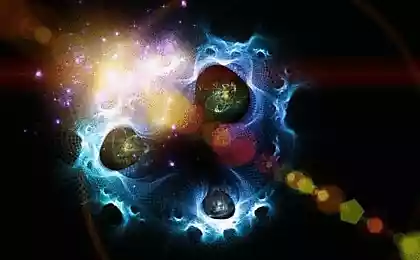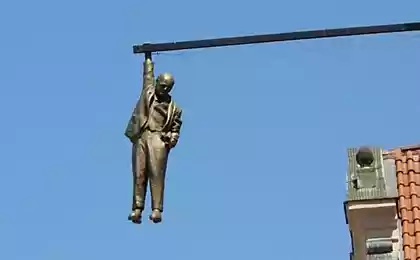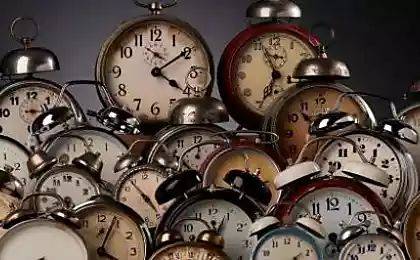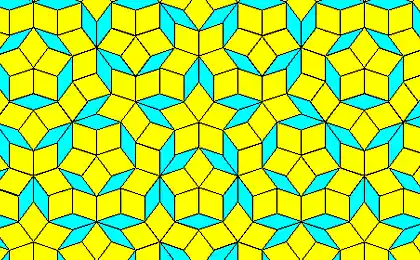516
No longer marginalized: what the new unconscious and what it differs from the old one
With the concept of "unconscious" came across one. We often use it in everyday conversations, justifying his behavior or trying to understand the motives of other people.
The unconscious is associated primarily with Freud, but modern studies have moved away from the concepts of the founder of psychoanalysis. Talk about new interpretations of the term.
The first attempt
To understand how scientists are now looking at the problems of consciousness and unconsciousness, it is worth remembering the history of science. First, the concept of the "unconscious" was introduced by Leibniz, likening it to the ocean and overlooking the Islands of consciousness. David Hartley, the founder of socianism first tied the manifestations of the unconscious with the activity of the nervous system. The German psychologist Johann Herbart is the author of the term "crowding out". He suggested that incompatible ideas are constantly in conflict, the winning ideas and the desire to displace the vanquished, but the latter is weak, but constantly affecting human behavior.
The concept of Freud arose out of his practice treating hysteria. Observation of patients has developed into a coherent theory, which is sketchy I know almost all: ego, superego, ID; constant conflict; man's attempt to cope with the unconscious mind and achieve psychological health. But among scholars of Freud's theory has an ambiguous attitude. Nobel laureate in physiology or medicine Peter Medawar called psychoanalysis "the greatest intellectual fraud of the twentieth century." Excessive emphasis on the libido, the idea of man as a victim in the battle of passions and conscience, the absence of the physiological bases of arguments against it abound. The concept of the unconscious has long been driven out of academic science.
Non-academic research
Interest in the unconscious grew in the second half of the twentieth century. However, not in an academic environment, and among the psychotherapists and followers of the philosophy of "new age". Relied on the unconscious experience of man and the creators of NLP and Milton Erickson. During the sessions of Ericksonian hypnosis, the therapist enters the client into a trance and pulls out the repressed ideas. The Creator of NLP Richard Bandler also repelled by the idea of the unconscious: people are not aware of their own ways of perceiving the world, and the therapist helps them to realize and then change.
© Witchoria
The American clinical psychologist Roger Callahan, who developed thought field therapy (TFT) in accordance with the traditions of Chinese medicine, believed to influence the subconscious mind by pressing on the acupuncture points on the human body. The theory underlying TFT, argues that negative emotions lead to a blockage of qi energy, and if energy unlock, then the fears will disappear. However, despite millions of fans, the method of Callahan has been recognized by scholars: it's more esoteric doctrine than on scientific study of the unconscious.
The new unconscious
Major discoveries in the field of the unconscious occurred at the intersection of psychology and neurophysiology. American psychologist Allan Hobson along with colleagues investigated the activity of the human brain during sleep and opened the periods of movement and restful sleep. To unconscious effects it has a direct relationship: first, the experiments of the two given the acceleration of psychophysiological research in General, and secondly, proved that the mental changes (e.g., viewing dreams) to track physical reactions. The experiments allowed to ignore all manifestations of the unconscious, inaccessible to introspective analysis. In the direction of determining the physiological reasons and moved some researchers. There weren't many, because the study of the unconscious in academic science was still taboo. Sociopsiholog Daniel Gilbert said that "because of the spirit of weirdness Freudian unconscious the whole concept turned out to be inedible."
Long proving the usefulness of studies of the unconscious, Hobson and Gilbert got his way, but the term was changed to "new unconscious". Now scientists believe that some mental processes are unconscious not because of the mechanisms of displacement: they are embedded deeply in the structure of the brain, in its ancient areas, working in parallel with the newly developed areas. Unconscious emotions become accepted as the norm, not as an unfortunate distortion of the thinking process.
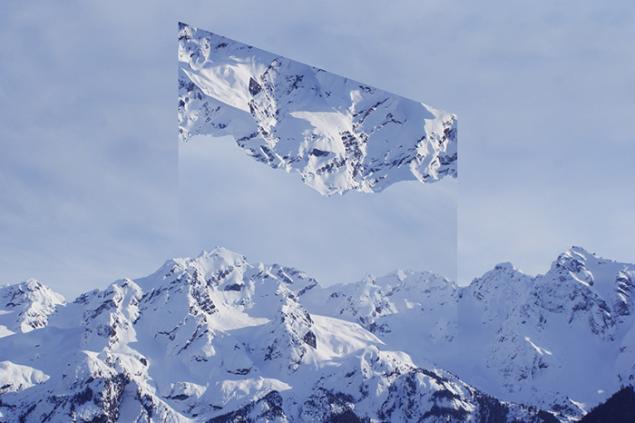
© Witchoria
Modern studies of the unconscious are divided into three groups:
Among scientists concerned with problems of perception, the American neuroscientist Christof Koch. During the Second world war, doctors became aware of the paradox of vision caused by traumatic brain injuries and concussions. A man with such a vision looking at the object, not realizing that sees him and the object information received in the brain. Patients, for example, emotionally reacted to the image of a human face, not understanding what they see. Koch conducted an experiment to achieve the same effect with healthy people. Subjects were simultaneously shown two pictures, different for each eye. One was static, the other were varied, but the brain only saw a changing picture. Koch concluded that information about the static picture obtained but not interpreted. But how to catch? This could make another group of scientists. The participants of the experiment showed not just a static picture and the picture with the emotionally meaningful image such as a photo of a naked women (for women — pictures of men). Subjects successfully recognized erotic images.
Unconscious memory was studied by the psychologist Dan Simons. He collected the memories of new Yorkers about September 11th: what they were doing at the time when he learned about the tragedy. As it turned out, the memory has let people down: tossed memories that never happened. Many noted that were near a TV, called a friend, though actually going about their business. The same distortion of memory demonstrate 75% of witnesses in criminal cases — Association of lawyers USA notes that the testimony should be treated with great caution. The problem is that memory works on a narrative principle. We tend to fold from memories of history, and if a fact does not lie in the story, our brain unconsciously alter memories about him.
© Witchoria
Even more important is the unconscious social perception — the unconscious mechanisms that are responsible for ideas of other people. The most interesting problem is the choice of partner and attitude towards her-a stranger. American psychologist John Johnsen showed that the highest number of marriages in the United States is between people of the same surname, although it is unlikely that Mr. Smith knowingly falls in love with miss Smith, not Ms. Jones. Research scientist with the French Hygena showed that girls are more willing to leave their phone number to men who while Dating lightly touch them — though the touch of a beautiful person don't realize.
Extensive research was conducted by the psychologist Muzaffer Sherif at a summer camp Robbers cave. Twenty-two boys were divided into two teams. The group lived far from each other, and each considered himself the only one around. When the teams met in the competition in tug of war, they immediately began to quarrel. Objective reasons for this was not just the perception of the work, bequeathed by the ancestors. The ancient region of the brain responsible for recognizing their own and others, is critical to primitive man. Now we rarely threaten other people, but the habit of perception remained.
At the moment, scientists refer to the unconscious as a resource area, which allows to collect information, to respond quickly to unexpected situations and to save energy that we spend on learning and thought processes. "Crowding out" is gone from the dictionary of psychologists, motivational theory recognize the notion of "attraction", but I think that the person is able to rein him in. The unconscious is no longer our enemy, but a friend and helper, with whom you agree and about which they need to learn as much as possible.published
Author: Sergei Galiullin
P. S. And remember, just changing your mind — together we change the world! ©
Join us in Facebook , Vkontakte, Odnoklassniki
Source: theoryandpractice.ru/posts/11858-new-subconcious
The unconscious is associated primarily with Freud, but modern studies have moved away from the concepts of the founder of psychoanalysis. Talk about new interpretations of the term.
The first attempt
To understand how scientists are now looking at the problems of consciousness and unconsciousness, it is worth remembering the history of science. First, the concept of the "unconscious" was introduced by Leibniz, likening it to the ocean and overlooking the Islands of consciousness. David Hartley, the founder of socianism first tied the manifestations of the unconscious with the activity of the nervous system. The German psychologist Johann Herbart is the author of the term "crowding out". He suggested that incompatible ideas are constantly in conflict, the winning ideas and the desire to displace the vanquished, but the latter is weak, but constantly affecting human behavior.
The concept of Freud arose out of his practice treating hysteria. Observation of patients has developed into a coherent theory, which is sketchy I know almost all: ego, superego, ID; constant conflict; man's attempt to cope with the unconscious mind and achieve psychological health. But among scholars of Freud's theory has an ambiguous attitude. Nobel laureate in physiology or medicine Peter Medawar called psychoanalysis "the greatest intellectual fraud of the twentieth century." Excessive emphasis on the libido, the idea of man as a victim in the battle of passions and conscience, the absence of the physiological bases of arguments against it abound. The concept of the unconscious has long been driven out of academic science.
Non-academic research
Interest in the unconscious grew in the second half of the twentieth century. However, not in an academic environment, and among the psychotherapists and followers of the philosophy of "new age". Relied on the unconscious experience of man and the creators of NLP and Milton Erickson. During the sessions of Ericksonian hypnosis, the therapist enters the client into a trance and pulls out the repressed ideas. The Creator of NLP Richard Bandler also repelled by the idea of the unconscious: people are not aware of their own ways of perceiving the world, and the therapist helps them to realize and then change.

© Witchoria
The American clinical psychologist Roger Callahan, who developed thought field therapy (TFT) in accordance with the traditions of Chinese medicine, believed to influence the subconscious mind by pressing on the acupuncture points on the human body. The theory underlying TFT, argues that negative emotions lead to a blockage of qi energy, and if energy unlock, then the fears will disappear. However, despite millions of fans, the method of Callahan has been recognized by scholars: it's more esoteric doctrine than on scientific study of the unconscious.
The new unconscious
Major discoveries in the field of the unconscious occurred at the intersection of psychology and neurophysiology. American psychologist Allan Hobson along with colleagues investigated the activity of the human brain during sleep and opened the periods of movement and restful sleep. To unconscious effects it has a direct relationship: first, the experiments of the two given the acceleration of psychophysiological research in General, and secondly, proved that the mental changes (e.g., viewing dreams) to track physical reactions. The experiments allowed to ignore all manifestations of the unconscious, inaccessible to introspective analysis. In the direction of determining the physiological reasons and moved some researchers. There weren't many, because the study of the unconscious in academic science was still taboo. Sociopsiholog Daniel Gilbert said that "because of the spirit of weirdness Freudian unconscious the whole concept turned out to be inedible."
Long proving the usefulness of studies of the unconscious, Hobson and Gilbert got his way, but the term was changed to "new unconscious". Now scientists believe that some mental processes are unconscious not because of the mechanisms of displacement: they are embedded deeply in the structure of the brain, in its ancient areas, working in parallel with the newly developed areas. Unconscious emotions become accepted as the norm, not as an unfortunate distortion of the thinking process.

© Witchoria
Modern studies of the unconscious are divided into three groups:
- unconscious perception,
- unconscious memory,
- unconscious social perception.
Among scientists concerned with problems of perception, the American neuroscientist Christof Koch. During the Second world war, doctors became aware of the paradox of vision caused by traumatic brain injuries and concussions. A man with such a vision looking at the object, not realizing that sees him and the object information received in the brain. Patients, for example, emotionally reacted to the image of a human face, not understanding what they see. Koch conducted an experiment to achieve the same effect with healthy people. Subjects were simultaneously shown two pictures, different for each eye. One was static, the other were varied, but the brain only saw a changing picture. Koch concluded that information about the static picture obtained but not interpreted. But how to catch? This could make another group of scientists. The participants of the experiment showed not just a static picture and the picture with the emotionally meaningful image such as a photo of a naked women (for women — pictures of men). Subjects successfully recognized erotic images.
Unconscious memory was studied by the psychologist Dan Simons. He collected the memories of new Yorkers about September 11th: what they were doing at the time when he learned about the tragedy. As it turned out, the memory has let people down: tossed memories that never happened. Many noted that were near a TV, called a friend, though actually going about their business. The same distortion of memory demonstrate 75% of witnesses in criminal cases — Association of lawyers USA notes that the testimony should be treated with great caution. The problem is that memory works on a narrative principle. We tend to fold from memories of history, and if a fact does not lie in the story, our brain unconsciously alter memories about him.

© Witchoria
Even more important is the unconscious social perception — the unconscious mechanisms that are responsible for ideas of other people. The most interesting problem is the choice of partner and attitude towards her-a stranger. American psychologist John Johnsen showed that the highest number of marriages in the United States is between people of the same surname, although it is unlikely that Mr. Smith knowingly falls in love with miss Smith, not Ms. Jones. Research scientist with the French Hygena showed that girls are more willing to leave their phone number to men who while Dating lightly touch them — though the touch of a beautiful person don't realize.
Extensive research was conducted by the psychologist Muzaffer Sherif at a summer camp Robbers cave. Twenty-two boys were divided into two teams. The group lived far from each other, and each considered himself the only one around. When the teams met in the competition in tug of war, they immediately began to quarrel. Objective reasons for this was not just the perception of the work, bequeathed by the ancestors. The ancient region of the brain responsible for recognizing their own and others, is critical to primitive man. Now we rarely threaten other people, but the habit of perception remained.
At the moment, scientists refer to the unconscious as a resource area, which allows to collect information, to respond quickly to unexpected situations and to save energy that we spend on learning and thought processes. "Crowding out" is gone from the dictionary of psychologists, motivational theory recognize the notion of "attraction", but I think that the person is able to rein him in. The unconscious is no longer our enemy, but a friend and helper, with whom you agree and about which they need to learn as much as possible.published
Author: Sergei Galiullin
P. S. And remember, just changing your mind — together we change the world! ©
Join us in Facebook , Vkontakte, Odnoklassniki
Source: theoryandpractice.ru/posts/11858-new-subconcious

